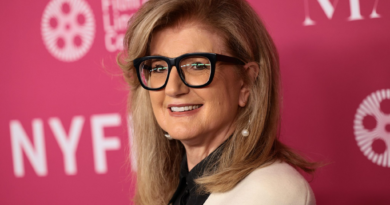Lerer Hippeau-backed startup On Me wants to disrupt the $200 billion gift card duopoly
As the holiday season approaches, your desk drawers are likely to start filling up with gift cards: those plastic rectangles that seem like money but so often sit unused, forgotten and forlorn.
The U.S. gift card market is estimated at more than $200 billion, yet the industry is dominated by two little-known companies, Blackhawk and InComm, and has seen little innovation in recent decades, even as mobile payment solutions like Apple Pay and Google Pay have grown in popularity.
On Me, a new startup founded by Google veterans Darragh Meaney and Sitar Harel, says it is poised to disrupt this duopoly with a digital-first gift card product not limited to individual retailers. On Me has raised $1.7 million in funding from payment giant Mastercard, as well as the top New York-based venture firm Lerer Hippeau.
“A lot of the gift card plays in the last 20 years have been wrappers around existing, very old technologies,” Meaney told Fortune in an interview. “What we want to do is build new technology rails from the ground up.”
Gift economy
Gift cards may seem like a strange endeavor for two former Google employees, but Meaney says he was motivated to leave his “cushy” job after seeing the technological progress of mobile wallets. Rather than gift cards for specific restaurants or stores, Meaney and his cofounder’s idea was to build a digital version that could be focused on specific hobbies, like running, to be used at a network of stores and integrated directly into Apple Pay or Google Pay.
He argues that single-merchant gift cards operate on the principle of “breakage,” or issuers earning revenue because gift cards go unspent, with Blackhawk and InComm offering the infrastructure. “It really is the classic VC story of a $200 billion industry that’s ripe for disruption,” Meaney told Fortune.
On Me taps into specific stores that accept Mastercard, allowing its gift cards to be customizable across different merchants. In return, On Me earns affiliate revenue from dollars spent at stores, rather than relying on unredeemed balances.
Mastercard invested in the company without taking equity in return, instead coming on board as an advisor. Meaney attributes Mastercard’s decision to wanting to bring the $200 billion gift card economy onto its own network of merchants. “They’re quite keen to get more interesting stuff on their rails, versus other places,” Meaney said.
He admits that gift cards are just taking money and “making it less fungible,” but argues they are still popular because most people do not feel comfortable giving cash, or even cash-based debit cards, as gifts. Meaney says that by basing On Me around different hobbies, from beauty to dessert, gift cards can become even more customizable.
Isabelle Phelps, a partner at Lerer Hippeau, told Fortune that her firm was most excited about On Me’s updated payment rails. “It’s enabled secure, personalized, gifting at scale that we think meets the needs of users,” she said, adding that “our phones are our wallets today.”
On Me launched in November with a team of six and plans to expand the 70-odd categories available as gift cards, accounting for around 2,000 retailers.




